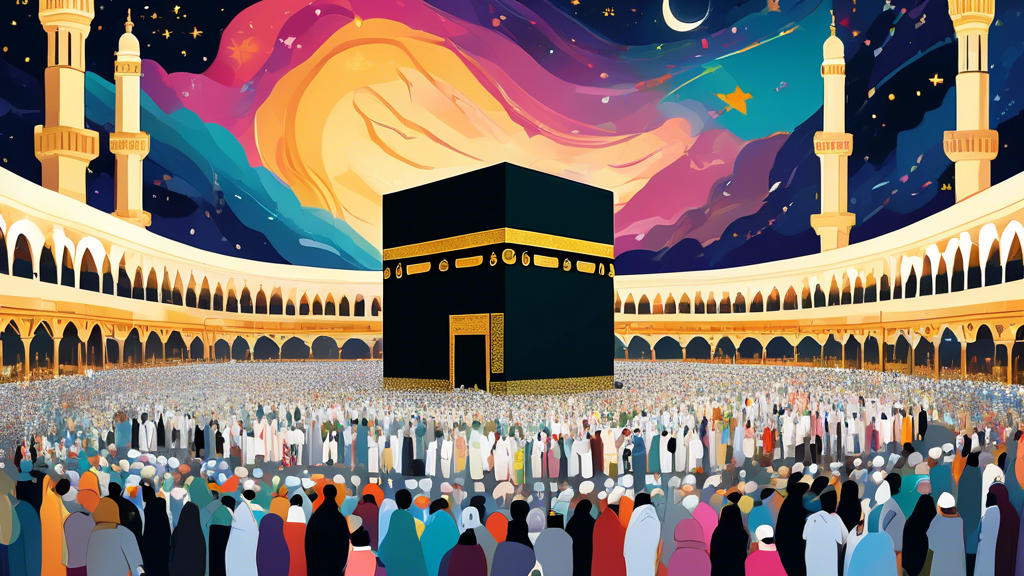Introduction to Umrah
Umrah, often referred to as the ‘lesser pilgrimage’ or ‘minor pilgrimage’, is a significant Islamic ritual performed by Muslims from around the world. Unlike Hajj, which is compulsory for all physically and financially capable Muslims and has specific dates according to the Islamic lunar calendar, Umrah can be undertaken at any time of the year. This spiritual journey to Mecca, Saudi Arabia, involves performing a series of ritual acts symbolic of the lives of Ibrahim (Abraham) and his second wife Hajar.
Planning Your Umrah
Choosing the Right Time
Although Umrah can be performed at any time, certain periods may be more beneficial or practical for pilgrims. The Islamic months of Ramadan, Rabi’ al-awwal, and Shawwal see higher numbers of pilgrims due to the significance of these months. Performing Umrah during Ramadan is especially considered highly virtuous, equivalent to performing Hajj in terms of rewards, according to some Hadiths. However, these periods also mean larger crowds and potentially higher costs.
Booking and Travel Arrangements
With the abolition of the Mahram rule in 2021, women can now perform Umrah without a male guardian, making it accessible to more pilgrims. It’s advisable to book your trip through a reputable travel agency that specializes in Umrah packages. These packages often include flights, accommodation, and transportation, making the journey smoother. Ensure your passport is valid for at least six months from the date of travel, and secure the necessary visa through the official Saudi portals or your travel agent.
Preparation for Umrah
Spiritual and Physical Preparation
Spiritual readiness is key to maximizing the experience of Umrah. Engage in regular prayer, read the Quran, and seek forgiveness and blessings from Allah. Physically, Umrah can be demanding. It involves walking long distances and performing rituals in potentially hot weather. Thus, physical fitness is important; consider starting an exercise regimen before your trip.
Packing Essentials
When packing for Umrah, simplicity is essential. Essential items include Ihram clothing for men (two unstitched white cloths) and modest, loose-fitting garments for women covering all but the face and hands. Comfortable walking shoes, toiletries (unscented, as perfumes are not allowed in the state of Ihram), a travel prayer mat, and a Quran or religious literature are also important. Additionally, carry some over-the-counter medications, especially for heat-related issues.
Performing Umrah Rituals
The Miqat
The journey begins at the Miqat, the designated point where pilgrims enter the state of Ihram and make the intention (Niyyah) for Umrah. From this point onward, certain prohibitions apply, such as refraining from cutting hair or nails, engaging in marital relations, or using perfume.
Tawaf and Sa’i
Upon reaching the Holy Mosque in Mecca, the first ritual is Tawaf, which involves circumambulating the Kaaba seven times, starting and ending at the Black Stone (Hajar al-Aswad). After Tawaf, pilgrims perform Sa’i, walking seven times between the hills of Safa and Marwah, re-enacting Hajar’s search for water for her son Ishmael. This is a reminder of her struggle and trust in Allah’s provision.
Halq or Taqsir
The final ritual involves shortening or shaving the hair. Men typically shave their heads (Halq), while women cut a small portion of their hair (Taqsir), symbolizing a renewal of faith and purity.
Health and Safety Guidelines
With the large crowds especially during peak seasons, it is crucial to maintain personal safety. Stay hydrated, use sunscreen, and keep necessary medications handy. Saudi authorities also enforce strict health protocols, so it’s advisable to check the latest travel advisories and health guidelines related to COVID-19 or other concerns.
Conclusion
Completing Umrah is a profound spiritual milestone for Muslims, rich with historical and religious significance. It offers a unique opportunity for self-reflection, penitence, and religious renewal. By carefully preparing and understanding the rituals involved, pilgrims can ensure a fulfilling and spiritually rewarding Umrah experience.
